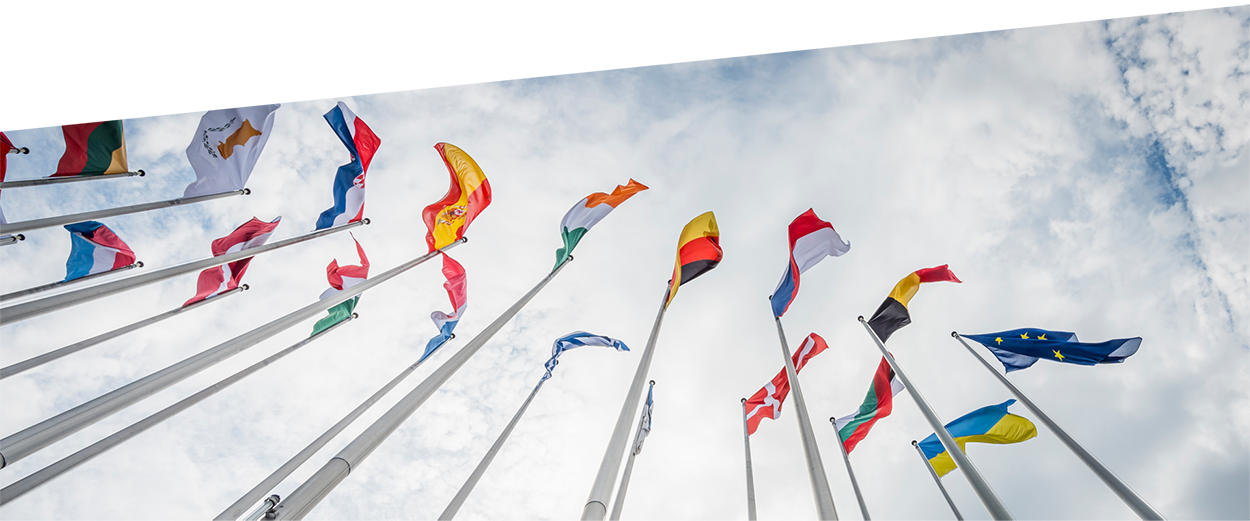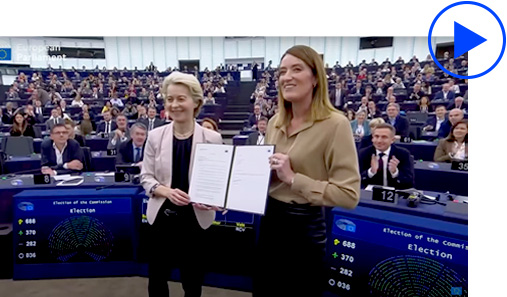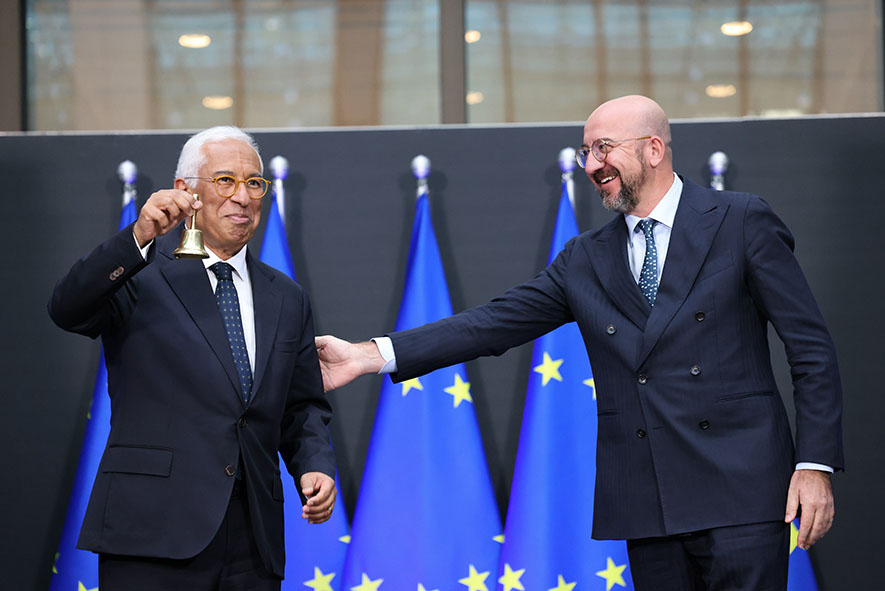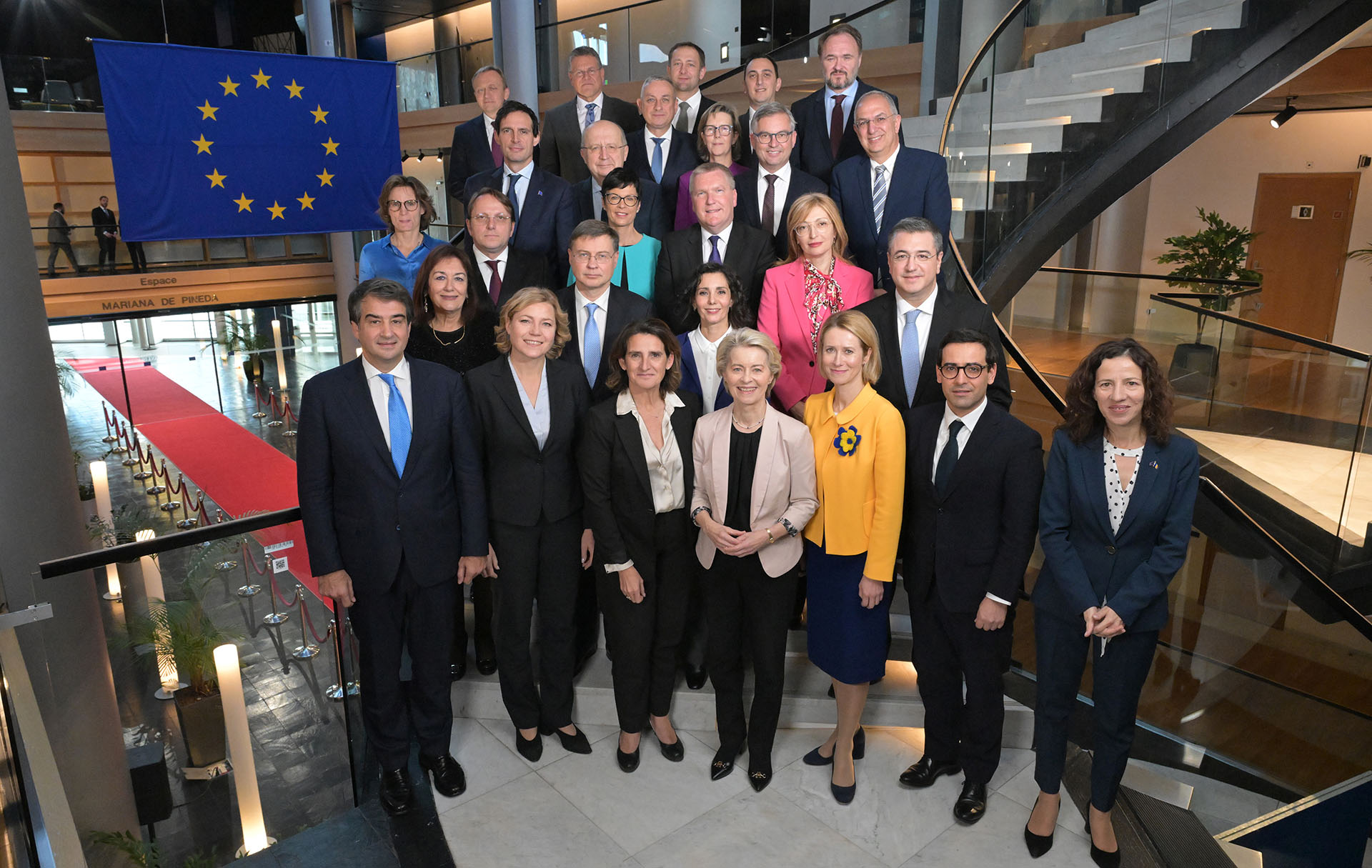Chapter 0
The EU in 2024 – staying the course

 View photo caption
View photo caption
2024 saw the end of one 5-year institutional period and the start of the next. Following the European elections in June, the European Union institutions launched the 2024–2029 political cycle with a commitment to work together for a safe, competitive and prosperous EU that stands for human rights, democracy and the rule of law. This chapter looks at the transition from one period to the next and outlines the main priorities for the new cycle. The rest of the publication (Chapters 1–9) shows how the EU delivered on its priorities in the final year of the 2019–2024 mandate.
2024 concluded the previous five-year political cycle, which despite the pressures of multiple crises saw the EU deliver on its ambitious objectives across policy areas (see Chapters 1–9). During the mandate, progress was made towards a new growth model that protects people and the planet; is economically sound and socially fair; and ensures that technology continues to bring benefits to citizens without putting them at risk. The EU institutions also prepared the ground for the beginning of the next cycle by defining new political priorities for 2024–2029 in line with the key concerns of citizens.
The European elections, which take place every five years, are the largest transnational democratic exercise in the world. The elections in June saw the highest voter turnout in the last 30 years (50.74 %). Voting in European elections has become an important democratic act for many citizens, with 46 % of those surveyed citing that they always vote and 42 % saying that they consider voting to be a civic duty.
Citizens remain optimistic about the future of the EU and continue to hold a positive impression of the EU and its institutions. Trust in the EU is at its highest level since 2007 - open a new tab. (see Chapter 9). The EU’s post-electoral survey - open a new tab. shows that 7 out of 10 Europeans think that their country has benefited from EU membership, a figure that has been stable in recent years. The reasons most cited for considering EU membership beneficial include increased cooperation between Member States, the protection of peace and strengthening of security, the EU’s contribution to economic growth and the creation of new work opportunities.
What determined citizens’ votes in the 2024 European elections?
(the seven topics most often mentioned)
42 %
rising prices,
the cost of living
41 %
the economic situation
34 %
the international situation
32 %
democracy and
the rule of law
28 %
migration and
asylum
28 %
the environment
and climate change
28 %
the EU’s defence
and security
Source: European Parliament, Eurobarometer – EU post-electoral survey 2024 - open a new tab., October 2024.
The EU’s leadership in 2024–2029
In July, the newly constituted Parliament - open a new tab. re-elected Roberta Metsola - open a new tab. as its President. Following the proposal from the European Council, the Parliament also elected Ursula von der Leyen - open a new tab. as President of the European Commission for a second term. After the successful confirmation hearings before the Parliament committees concerned, at the end of November the Parliament approved the new composition of the European Commission - open a new tab., including the new High Representative for Foreign Affairs and Security Policy, Kaja Kallas. The new College of Commissioners took office on 1 December, as appointed by the European Council. At the same time, António Costa - open a new tab. took over from Charles Michel as President of the European Council.



The work of the EU in the new institutional cycle will be guided by the Strategic Agenda 2024–2029 - open a new tab., adopted by EU leaders in June. The Strategic Agenda aims to better equip Europe to deal with immediate and future challenges by focusing on three key areas.
Strategic Agenda 2024–2029
- A free and democratic Europe.
- A strong and secure Europe.
- A prosperous and competitive Europe.
In line with the Strategic Agenda, the President of the European Commission defined the Commission’s priorities for 2024–2029 - open a new tab., based on the Political Guidelines - open a new tab. presented to the Parliament. They set out seven ambitious political priorities to make Europe stronger, safer and fairer.
Commission priorities for 2024–2029
A new plan for Europe’s sustainable prosperity and competitiveness.
A new era for European defence and security.
Supporting people, strengthening our societies and our social model.
Sustaining our quality of life: food security, water and nature.
Protecting our democracy, upholding our values.
A global Europe: leveraging our power and partnerships.
Delivering together and preparing our Union for the future.
Key initiatives to be launched in the first 100 days of the Commission
A New Clean Industrial Deal for competitive industries and quality jobs.
A White Paper on the Future of European Defence to identify investment needs.
An AI Factories initiative to ensure access to new, tailored supercomputing capacity for AI start-ups and industry.
A European Action Plan on the Cybersecurity of Hospitals and Healthcare Providers to improve threat detection, preparedness and crisis response.
A Vision for Agriculture and Food to ensure the long-term competitiveness and sustainability of the farming sector.
Pre-enlargement policy reviews to better prepare for future accessions.
Youth Policy Dialogues with all Commissioners to give young people greater freedom and responsibility within EU societies and democracies.